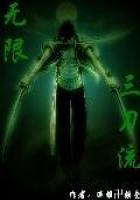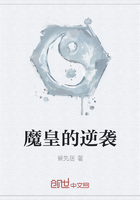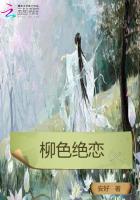If we could see a psychical cinematograph of our own lives would we not be amazed, and exclaim,“Surely that did not happen to me?”Certainly the four people I remember walking about the streets of London might just as well have existed in the imagination of Charles Dickens, and at the present moment I can scarcely believe in their reality。 That we youngsters could remain cheerful through such a series of disasters is not astonishing, but that my poor mother, who had already experienced so many hardships and troubles in her life, and who was no longer young, could take them as the ordinary run of things, seems incredible as I look back upon those days。
We walked along the streets of London with no money, no friends, and no possible means of finding shelter for the night。 We tried two or three hotels, but they were adamant upon the necessity of payment in advance, in default of luggage。We tried two or three lodging?houses, but all the landladies acted in the same heartless manner。Finally we were reduced to a bench in the Green Park, but even then an enormous policeman appeared and told us to move on。
This continued for three days and three nights。 We lived upon penny buns, and yet, such was our amazing vitality, we spent our days in the British Museum。I remember I wasreading the English translation of Winckelmann's Journey to Athens and, our strange situation quite forgotten, I wept, not for our own misfortunes, but over the tragic death of Winckelmann returning from his ardent voyage of discovery。
But with the dawn of the fourth day I decided that some thing must be done。 Admonishing my mother, Raymond and Elizabeth to follow me and not to say a word, I walked straight into one of the finest hotels in London。I informed the night porter, who was half asleep, that we had just come on the night train, that our luggage would come on from Liverpool, to give us rooms in the meantime, and to order breakfast to be sent up to us, consisting of coffee, buckwheat cakes, and other American delicacies。
All that day we slept in luxurious beds。 Now and then I telephoned down to the porter to complain bitterly that our luggage had not arrived。
“It is quite impossible for us to go out without a change of clothes,”I said, and that night we dined in our rooms。
At dawn of the next day, judging that the ruse had reached its limit, we walked out exactly as we had walked in, but this time without waking the night porter!
We found ourselves on the streets greatly refreshed and ready once again to face the world。 That morning we strolled down to Chelsea, and were sitting in the graveyard of the old church, when I noticed a newspaper lying on the path。Picking it up, my eyes fell upon a paragraph stating that a certain lady, in whose house I had danced in NewYork, had taken a house in Grosvenor Square and was entertaining largely。I had a sudden inspiration。
“Wait here,”I said to the others。
I found my way alone to Grosvenor Square just before lunch, and found the lady at home。 She received me very kindly, and I told her I had come to London and was dancing in drawing?rooms。
“That would be just the thing for my dinner?party on Friday night,”she said。“Could you give some of your interpretations after dinner?”
I consented, and delicately hinted that a small advance was necessary to hold the engagement。 She was most gracious, and at once wrote out a cheque for?10,with which I raced back to the Chelsea graveyard, where I found Raymond holding a discourse on the platonic idea of the soul。
“I am to dance Friday night at Mrs。 X's house in Grosvenor Square;probably the Prince of Wales will be there;our fortunes are made!”and I showed them the cheque。
Then Raymond said,“We must take this money and find a studio and pay a month in advance, for we must never again subject ourselves to the insults of these low, common lodging?house women。”
We searched for a studio, and found a small one off the King's Road, Chelsea, and that night we slept in the studio。 There were no beds, and we slept on the foor, but we felt that we were again living as artists, and we agreed with Raymond that we could never again occupy so bourgeois a home as lodgings。
With what remained of the money, after paying the rent of the studio, we bought some canned food as provision for the future, and I bought a few yards of veiling at Liberty's, in which I appeared on Friday evening at Mrs。 X's party。I danced the“Narcissus”of Nevin, in which I was a slight adolescent, for I was then very thin, enamoured of his own image in the water。I also danced the“Ophelia”of Nevin, and I heard people whisper,“Where did the child get that tragic expression?”At the close of the evening I danced Mendelssohn's“Spring Song。”
My mother played for me;Elizabeth read some poems of Theocritus, translated by Andrew Lang, and Raymond gave a short conference upon the subject of dancing and its possible efect on the psychology of future humanity。 This was slightly above the heads of the well?fed audience, but at the same time it was very successful, and the hostess was delighted。
It was typical of an English well?bred assembly that no one remarked that I danced in sandals and bare feet, and transparent veils, although this simple apparition made the klatch of Germany some years later。But the English are such an extremely polite people that no one even thought of remarking upon the originality of my costume and, alas!Neither did they remark upon the originality of my dancing。Everyone said,“How pretty,”“Awfully jolly,”“Thank you so much,”or something of the sort—but that was all。
But from this evening I received many invitations to dance in many celebrated houses。 One day I would findmyself dancing before Royalty, or in the garden at Lady Lowther's, and the next with nothing to eat。For sometimes I was paid, more often I was not。Hostesses were apt to say:“You will dance before the Duchess of So?and?So, and so many distinguished people will see you that your name will be made in London。”
I remember one day when I danced for four hours in aid of a charity performance that, as a reward, a titled lady poured out my tea and gave me strawberries with her own hands, but I was so ill from not having had any solid food for some days that those strawberries and the rich cream made me very miserable indeed。 At the same time another lady held up a huge bag filled with golden sovereigns and said:“Look at the mint of money you have made for our Blind Girls'Home!”
My mother and I were both too sensitive to tell these people of what unheard?of cruelty they were guilty。On the contrary, we denied ourselves proper food in order to have the money to appear well dressed and prosperous。
We bought some cot beds for the studio and hired a piano, but we spent most of our time in the British Museum, where Raymond made sketches of all the Greek vases and bas?reliefs, and I tried to express them to whatever music seemed to me to be in harmony with the rhythms of the feet and Dionysiac set of the head, and the tossing of the thyrsis。We also spent hours every day in the British Museum Library, and we lunched in the refreshment room on a penny bun and caféau lait。
We were crazy with enthusiasm at the beauty of London。 All the things that were culture and architectural beauty I had missed in America, but now I was able to drink my fill of them。
Before we left New York a year had passed since I had last seen Ivan Miroski, and then, one day, I received a letter from a friend in Chicago telling me that he had volunteered for the Spanish War, had got as far as the camp in Florida, had there been stricken with typhoid fever, and had died。 The letter was a terrible shock to me。I could not believe that the news was true。One afternoon I walked down to the Cooper Institute and looked through the files of old newspapers, and there I found, in very small print, among hundreds of others, his name among the dead。
The letter had also given me the name and address of his wife in London, so one day I took a hansom cab and started out to fnd Madame Miroski。 The address was very far out, somewhere in Hammersmith。I was still more or less under the Puritanical influence of America, and so I considered it dreadful that Ivan Miroski had left a wife in London of whom he had never spoken to me。So I told no one of my project。Giving the cabman the address, I drove for what appeared to be miles, almost to the outskirts of London。There were rows and rows of small grey houses, each one exactly like the other, with most melancholy and dingy front gates, each bearing a designation more imposing than its neighbour。There were Sherwood Cottage, Glen House, Ellesmere, Ennismore, and other totally inappropriatenames, and finally Stella House, where I rang the bell and the door was opened by a more than usually gloomy London maid。I asked for Madame Miroski, and was shown into a stufy parlour。I was dressed in a white muslin Kate Greenaway dress, a blue sash under the arms, a big straw hat on my head, and my hair in curls on my shoulders。
I could hear feet trampling overhead, and a sharp, clear voice saying,“Now, girls, order, order。”Stella House was a school for girls。 I was labouring under an emotion that was a mixture of fright and, in spite of Ivan's tragic death, a gnawing jealousy, when there entered one of the strangest little figures I have ever seen in my life, not more than four feet high, thin to emaciation, with shining grey eyes, and sparse grey hair, a small white face, with thin, compressed, pale lips。
Her welcome was not very cordial。 I tried to explain who I was。
“I know,”she said,“you are Isadora;Ivan wrote to me about you in many of his letters。”
“I am so sorry,”I faltered。“He never spoke to me about you。”
“No,”she said,“he would not, but I was to have gone out to him and now—he is dead。”
She said this with such an expression of voice that I began to cry。 Then she began to cry, too, and with that it was as though we had always been friends。
She took me up to her room, where the walls were covered with pictures of Ivan Miroski。 There were pictures of him when he was young—a face of extraordinary beautyand force, and a picture which he had sent her in his uniform as a soldier, which she had encircled with crape。She told me the story of their life, how he had gone to seek his fortune in America, only there was not enough money for both to go together。
“I was to have joined him,”she said。“He always kept writing:‘In a very little while I shall have the money and you will come。'”
Years went by, and she still kept her position as governess in a girls'school, and her hair had turned white, and still Ivan had never sent her the money to go to America。
I contrasted the fate of this patient little old lady—for she seemed very old to me—with my own daring voyages, and I could not understand it。 As she was Ivan Miroski's wife, why had she not gone to him, if she had wanted to?Even as a steerage passenger。For I was never able to understand, then or later on, why, if one wanted to do a thing, one should not do it。For I have never waited to do as I wished。This has frequently brought me to disaster and calamity, but at least I have had the satisfaction of getting my own way。How could this poor, patient little creature have waited, year after year, for a man who was her husband to send for her?
I sat in her room surrounded by the pictures of Ivan, she holding my hands in a tight grip and talking and talking about him, until I realised it was becoming dark。
She made me promise to come again, and I said she must come and see us, but she said she never had a moment, asshe had to work from very early in the morning until late at night, teaching and correcting the girls'exercises。
As I had sent the cab away, I went home on the tops of buses。 I remember I cried all the way home at the fate of Ivan Miroski and his poor little wife, but at the same time I had a strange exultant sense of power and a contempt for people who were failures, or who spent their lives waiting for things。Such is the cruelty of extreme youth。
Up to then I had been sleeping with Ivan Miroski's photograph and letters under my pillow, but from that day I consigned them to a closed packet in my trunk。
When the first month of our tenancy of the Chelsea studio was ended the weather was very hot, and we took a furnished studio which we found to let in Kensington。 Here I had a piano and more room to work in。But suddenly, at the end of July, the London season closed, and there we were with August before us and very little money saved from the season。We spent the entire month of August between the Kensington Museum and the British Museum Library, and we often walked home, after the library closed, from the British Museum to our studio in Kensington。
One evening, to my astonishment, little Madame Miroski made her appearance and invited me to dinner。 She was much excited。This visit meant a great adventure to her。She even ordered a bottle of Burgundy for our dinner。She asked me to tell her just how Ivan had looked in Chicago, and what he had said, and I told her how he lovedto gather the golden?rod in the woods, how I had seen him one day with the sun shining on his red hair and his arms filled with golden?rod, and how I always associated him with that fower。She wept, and I also shed tears。We drank another bottle of Burgundy, and indulged in a perfect orgy of reminiscences。Then she left me to find her way home by a labyrinth of omnibuses, back to Stella House。
September came, and Elizabeth, who had had some correspondence with the mothers of our former pupils in New York, one of whom sent her a cheque for her return passage, decided that she must go back to America and make some money。
“For,”she said,“if I make money I can send some to you, and as you will soon be rich and famous, I can soon rejoin you。”
I remember we went to a store in Kensington High Street and bought her a warm travelling coat, and finally we saw her of on the boat train, and we three who were left behind réturned to the studio, where we spent some days of absolute depression。
The cheery and gentle Elizabeth was gone。 October loomed cold and dreary。We had our frst taste of a London fog, and a régime of penny soups had perhaps rendered us an?mic。Even the British Museum had lost its charm。There were long days when we had not even the courage to go out, but sat in the studio wrapped in blankets, playing chequers on an improvised chequerboard with pieces of cardboard。
Just as I am astonished when I look back at our extra?ordinary buoyancy, so, when I look back on this period, I am astonished at the complete collapse of our spirits。 There were days, in fact, when we no longer had the courage to get up in the morning, but slept all day。
At last there came a letter from Elizabeth enclosing a remittance。 She had arrived in New York, had put up at the Buckingham Hotel in Fifth Avenue, opened her school, and was doing well。This gave us heart。As the term of our studio had expired, we rented a small furnished house in Kensington Square。This gave us the privilege of a key to the Square gardens。
One night, in the Indian summer, Raymond and I were dancing in the gardens, when an extremely beautiful woman in a large black hat appeared and said,“Where on earth did you people come from?”
“Not from the earth at all,”I replied,“but from the moon。”
“Well,”she said,“whether from the earth or the moon, you are very sweet;won't you come and see me?”
We followed her to her very lovely home in Kensington Square, where marvellous pictures by Burne?Jones and Ros?setti and William Morris refected her image。
She was Mrs。 Patrick Campbell。She sat at the piano and played to us and sang old English songs, and then she recited poetry for us, and finally I danced for her。She was magnificently beautiful, with luxurious black hair, great black eyes, a creamy complexion, and the throat of a goddess。
She made us all fall in love with her, and that meeting with her definitely rescued us from the state of gloom and depression into which we had fallen。 It also inaugurated the epoch of a change of fortune, for Mrs。Patrick Campbell expressed herself so delighted with my dancing that she gave me a letter of introduction to Mrs。George Wyndham。She told us that as a young girl she had made her debut at Mrs。Wyndham's house, reciting Juliet。Mrs。Wyndham received me most charmingly, and I had my frst experience of an English afternoon tea before an open fire。
There is something about an open fire, bread and butter sandwiches, very strong tea, a yellow fog without, and the cultural drawl of English voices which makes London very attractive, and, if I had been fascinated before, from that moment I loved it dearly。 There was in this house a magic atmosphere of security and comfort, of culture and ease, and I must say I felt as much at home as a fish that has found the water to which it belongs。The beautiful library, too, attracted me very much。
It was in this house that I first noticed the extraordinary demeanour of good English servants, who move about with a sort of assured aristocratic manner of their own, and, far from objecting to being servants, or wishing to rise in the social scale as they do in America, they are proud of working“for the best families。”Their fathers did it before them, and their children will do it after them。 This is the kind of thing that makes for the calm and security of existence。
Mrs。 Wyndham arranged for me to dance in her drawing?room one evening, and nearly all the artistic and literary people in London were present。Here I met a man who was to impress himself deeply on my life。He was a man of about fifty years of age at that time, with one of the most beautiful heads I have ever seen。Deep?set eyes under a prominent forehead, a classical nose and a delicate mouth, a tall, slender fgure with a slight stoop, grey hair parted in the middle and waving over his ears, and a singularly sweet expression。This was Charles H llé,the son of the famous pianist。It was strange that of all the young men I met at that time, who were quite ready to pay court to me, no one attracted me, in fact I did not even notice their existence, but I became at once passionately attached to this man of fifty。
He had been a great friend of Mary Anderson in her youth, and he invited me to tea at his studio where he showed me the tunic she had worn as Virgilia in Coriolanus, and which he kept as a sacred memento。 After this first visit our friendship became very deep, and there was hardly an afternoon that I did not fnd my way to his studio。He told me many things about Burne?Jones, who had been his intimate friend, Rossetti, William Morris, and all the school of Pre?Raphaelites;of Whistler and Tennyson—all of whom he had known very well。In his studio I spent enchanted hours, and it is to the friendship of this delightful artist that I partly owe the revelation of the art of the Old Masters。
At that time Charles Hallé was a Director of the New Gallery, where all the modern painters exhibited。It was a very charming little gallery, with a central court and a fountain, and Charles H llé conceived the idea of my giving performances there。He introduced me to his friends。Sir William Richmond, the painter, Mr。Andrew Lang, and Sir Hubert Parry, the composer, and each consented to give a conference—Sir William Richmond upon dancing in its relation to painting, Andrew Lang on dancing in its relation to the Greek myth, and Sir Hubert Parry on dancing in its relation to music。I danced in the central court, round the fountain, surrounded by rare plants and flowers and banks of palms, and these functions were a great success。The newspapers were enthusiastic and Charles H llé was overjoyed at my success;everyone of note in London invited me to tea or dinner, and we had a short period during which fortune smiled upon us。
One afternoon at a crowded reception in Mrs。 Ronald's little house I was presented to the Prince of Wales, afterwards King Edward。He exclaimed that I was a Gainsborough beauty, and this appellation added to the general enthusiasm of London Society。
Our fortunes having improved, we took a large studio in Warwick Square, where I spent my days in working out the new?found inspiration under the influence of what I had seen of Italian art in the National Gallery, though I think that at this period I was also strongly under the infuence of Bume?Jones and Rossetti。
At that moment there came into my life a young poet with a soft voice and dreamy eyes, fresh from Oxford。 He was descended from a line of Stewarts and his name was Douglas Ainslie。Every evening at dusk he appeared at the studio with three or four volumes under his arm, and read to me the poems of Swinburne, Keats, Browning, Rossetti, and Oscar Wilde。He loved reading aloud and I adored listening to him。My poor mother, who deemed that it was absolutely necessary to act as chaperon on these occasions, although she knew and loved this poetry, could not understand the Oxford manner of reciting poetry, and after an hour or so, especially of William Morris, she used to fall asleep, at which moment the young poet would lean forward and kiss me lightly on the cheek。
I was very happy in this friendship, and between Ainslie and Charles H llé I desired no other friends。Ordinary young men bored me exceedingly, and though at the time there were many who, after seeing me dance in London drawing?rooms, would have been delighted to call upon me or take me out, my manner was so superior that they were completely frozen。
Charles H llé lived in a little old house in Cadogan Street, with a very charming maiden sister。Miss Halle was also most kind to me, and would often invite me to little dinners where we were three alone, and it was with them that I first went to see Henry Irving and Ellen Terry。I saw Irving first in The Bells, and his great art excited in me such enthusiasm and admiration that I lived underthe impression of it and could not sleep for weeks。As for Ellen Terry, she became then, and ever after remained, the ideal of my life。And who that never saw Irving could ever comprehend the thrilling beauty and grandeur of his interpretations。It is impossible to describe the charm of his intellectual and dramatic power。He was an artist of such genius that his very defects became qualities to be admired。There was something of the genius and majesty of Dante in his presence。
One day in that summer Charles H llé had taken me to see Watts, the great painter, and I danced for him in his garden。In his house I saw the marvellous face of Ellen Terry repeated many times in his pictures。We walked together in his garden, and he told me many beautiful things about his art and life。
Ellen Terry was then in the full maturity of her magnificent womanhood。 She was no longer the tall, slender girl who had captured the imagination of Watts, but deep?bosomed, with swelling hips, and a majestic presence, very different from the present?day ideal!If audiences of today could have seen Ellen Terry in her prime, she would have been besieged with advice on how to become thin by dieting, etc。,and I venture to say that the greatness of her expression would have suffered had she spent her time, as our actresses do now, trying to appear young and thin。She did not look slight or thin, but she was certainly a very beautiful example of womanhood。
Thus I came in contact, in London, with the highestintellectual and artistic personalities of the day。 As the winter wore on there were fewer salons than in the season, and for a time I joined Benson's Company, but never got any further than playing the first fairy in the Midsummer Night's Dream。It seemed that theatre managers were unable to understand my art, or to understand how my ideas might have been of benefit to their productions。This is strange when one considers how many bad copies of my schools have appeared since in the productions of Reinhardt, Gemier, and others of the Advance?guard of the Theatre。
One day I had an introduction to Lady(then Mrs。)Tree。 I went up to her dressing?room during a rehearsal, and found her most cordial。But when, following her instructions, I put on my dancing?tunic and she took me on to the stage to dance for Beerbohm Tree, and I danced Mendelssohn’s“Spring Song”for him, he would hardly look at me and kept gazing in a distracted way up to the flies。I told him this story afterwards in Moscow, when he had toasted me。at a banquet as one of the world’s greatest artists。
“What,”he exclaimed,“I saw your dance, your beauty, your youth, and did not appreciate it?Ah!What a fool I was!”“And now,”he added,“it is too late, too late!”
“It is never too late,”I replied, and from that moment he gave me a tremendous amount of appreciation, about which I will speak later。
In fact, at that time, it was difficult for me to understand why, when I had awakened a frenzy of enthusiasm andadmiration in such men as Andrew Lang, Watts, Sir Edwin Arnold, Austin Dobson, Charles Hallé—in all the painters and poets whom I had met in London—the theatre managers remained unmoved, as if the message of my art was too spiritual for their gross, materialistic comprehension of the art of the theatre。
I worked in my studio all day, and towards evening either the poet came to read to me or the painter took me out or watched me as I danced。 They arranged never to come together, as they formed a violent antipathy to each other。The poet said he could not see how I could possibly spend so much time with that old fellow, and the painter said he could not understand how any intelligent girl could see anything in that jackanapes。But I was entirely happy in both friendships, and really could not tell which I was most in love with。Only Sundays were always reserved for Hallé when we lunched in his studio on a p té de foie gras from Strasbourg, sherry, and cofee, which he made himself。
One day he permitted me to don the famous tunic of Mary Anderson, in which I posed for him for many sketches。
And so the winter passed。















